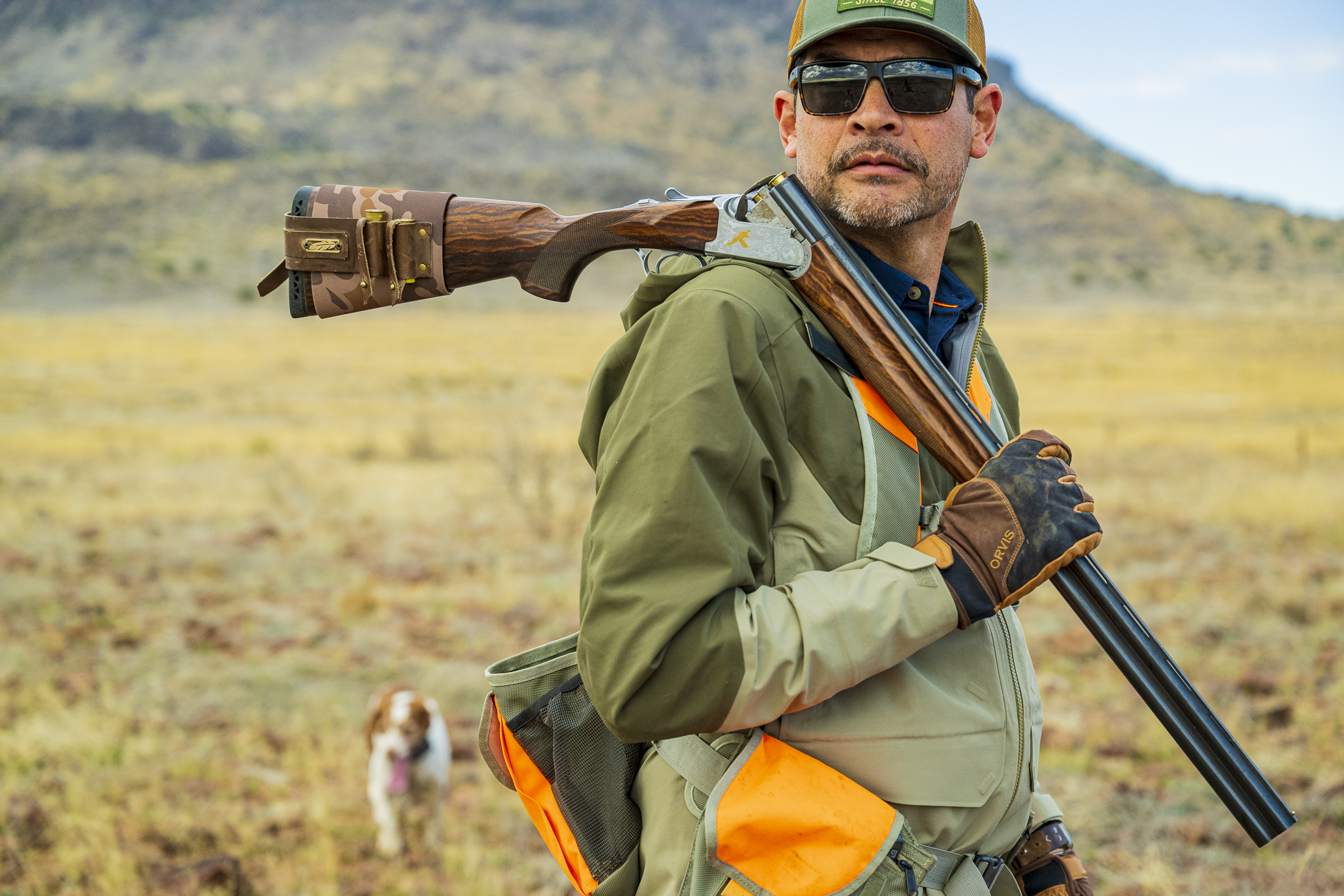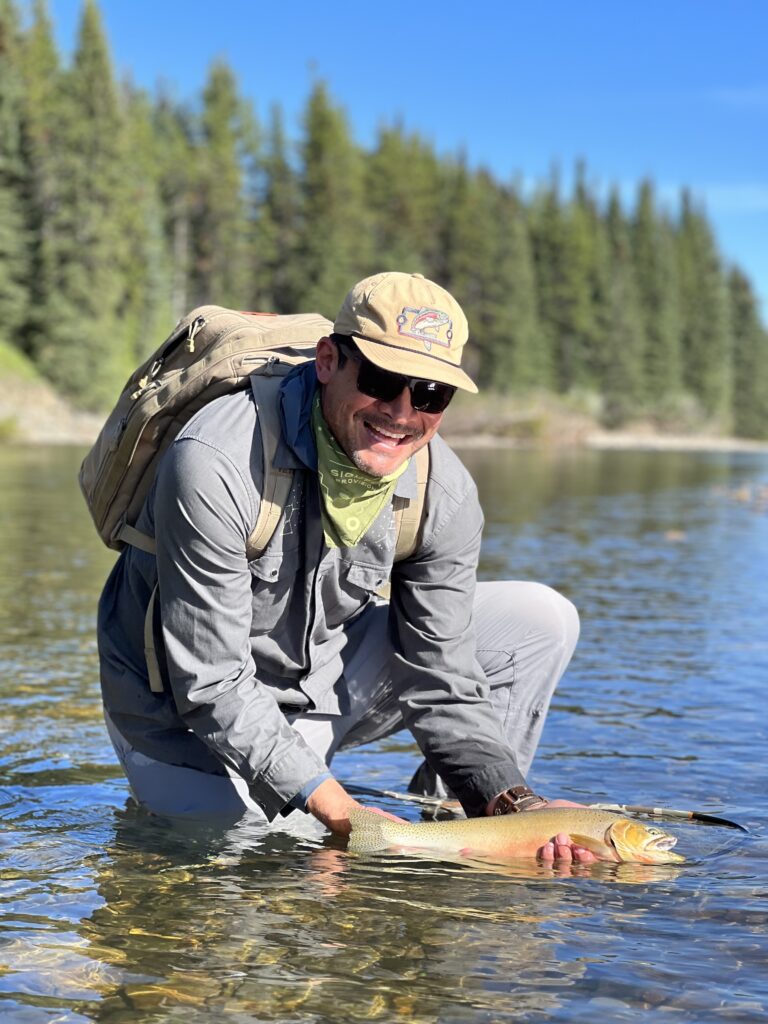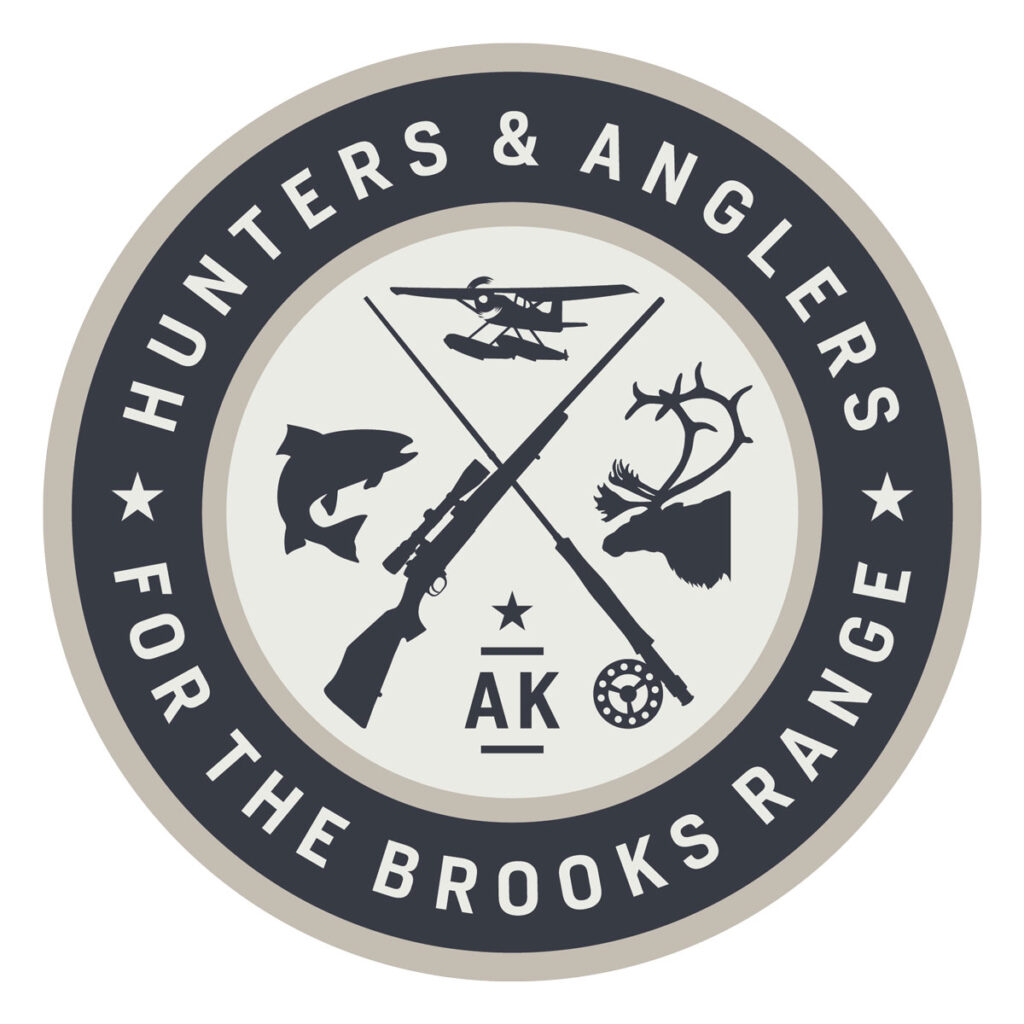TRCP_AISCommission_ExecutiveSummary-Cover-Image_Mar2023-800
Do you have any thoughts on this post?
Edgar Diaz’s lifelong connection to the outdoors, shaped by childhood adventures in Baja and Southern California, led him to found Sight Line Provisions—a brand deeply committed to conservation. With a blend of personal passion and professional dedication, Edgar advocates for responsible stewardship of our wild spaces, inspiring others to join him in protecting the outdoors for years to come.
Here is his story.

From my earliest memories, the outdoors has been my sanctuary. Those family vacations to the beaches of Baja and the mountains of Southern California are etched in my mind like the lines my father used to make on our old powder blue tent marking each destination we visited as a family. Camping on bluffs in Ensenada and by the Kern River, I found solace and excitement in nature, especially when paired with my father’s love for fishing.
Edgar has always been called by the ocean and mountains where he developed his love of fishing, mountain biking, and birding. His connection to the outdoors started with these activities.
Today, if I could pick any place to hunt or fish, it would undoubtedly be Baja California. The allure of chasing California quail in the morning, followed by the exhilaration of pursuing roosterfish, fills my dreams. I recall a particularly memorable fishing trip where I stumbled upon a California quail —and it was a perfect blend of my passions. I know this trip would be an epic cast and blast.

Conservation has become more than just a cause; it’s a way of life for me. As the founder of Sight Line Provisions, I’ve woven conservation into the fabric of our brand. Preserving our natural resources isn’t just a duty; it’s essential for our enjoyment of the outdoors. Here in Central Texas, I’ve personally witnessed the impact of conservation efforts, especially through organizations like Guadalupe Trout Unlimited, which has transformed our local fishery into a gem for our community.
Yet, despite the progress, challenges loom large, none more pressing than water conservation. Here in the Texas Hill Country, water is a precious resource, one that’s often wasted, diverted, or even stolen. It’s a battle we must fight together as a community, safeguarding our natural treasures for future generations.

For me, being involved in conservation isn’t just about reducing my footprint—it’s about leaving a legacy. It’s about ensuring that the wild places I love remain for those who come after me. Through Sight Line Provisions, I strive to support the very organizations and efforts that protect the landscapes and waters that have shaped me.
Sight Line Provisions partners with organizations like Captains for Clean Water, Trout Unlimited, The Mayfly Project, and the F-Y-S-H Project to raise funds and awareness for issues important to the sporting community.
But conservation isn’t just about protecting nature; it’s about preserving a way of life. It’s about passing on the tradition to the next generation of hunters and anglers. In a world where progress threatens to overshadow the simple joys of the outdoors, it’s our responsibility to ensure that future generations have the same opportunities to connect with nature that we’ve had. It’s about staying informed, acting responsibly, and most importantly, getting that younger generation into the great outdoors. After all, they are the stewards of tomorrow, and it’s up to us to equip them with the knowledge and passion necessary to protect our wild spaces for generations to come.
Do you know someone “In the Arena” who should be featured here? Email us at info@trcp.org
The TRCP is your no-B.S. resource for all things conservation. In our weekly Roosevelt Report, you’ll receive the latest news on emerging habitat threats, legislation and proposals on the move, public land access solutions we’re spearheading, and opportunities for hunters and anglers to take action. Sign up now.
The Central Yukon Resource Management Plan includes measures to safeguard important habitat and world-class recreation opportunities
Today, after more than a decade of engagement with local residents, Alaska Native Tribes, hunters and anglers, and conservation and development interests, the Bureau of Land Management released a revised resource management plan for 13.3 million acres of BLM-managed public lands in northern Alaska.
The Central Yukon planning area features some of the most valued big game species in Alaska—including Dall sheep, moose, and caribou—and 25 species of fish. The area is perhaps best recognized for the Dalton Highway Corridor, also known as the Haul Road. This unique recreation destination allows for some of the most remote—yet road accessible—hike-in and float trips in Alaska. BLM-managed lands within the 56-million-acre planning area provide important habitat connectivity between several conservation units that are prized by hunters and anglers, including five national wildlife refuges.
“The BLM’s revised Central Yukon plan is great news for Alaskans and visiting hunters and anglers who know and treasure these wild public lands, and for everyone who dreams of an iconic Haul Road hunting or fishing trip,” said Jen Leahy, Alaska senior program manager for the Theodore Roosevelt Conservation Partnership. “The hunting and fishing community has been involved in this plan revision for many years. We thank the BLM for adopting several habitat-focused measures in the final plan, which, as a whole, appropriately balances conservation and development interests.”
The plan contains measures that avoid or minimize impacts to fish, wildlife, and important habitats; outlines steps to prepare for the growing recreational demand along the Dalton Corridor that is expected to increase over the next two decades; and maintains existing conservation safeguards that were already in place to uphold the quality hunting, fishing, and other recreational opportunities of the region. To manage for continued hunting and fishing opportunities in the Dalton Corridor, the BLM is proposing to adopt a Backcountry Conservation Area, a land use allocation focused on habitat conservation and wildlife dependent recreation that allows for other traditional uses to continue. The plan additionally includes provisions to conserve habitat for caribou and Dall sheep.
Following a 60-day review period, the BLM will issue an approved RMP and Record of Decision. Once final, the RMP will guide landscape-level management and the various uses allowed on BLM lands in this region for the next 20 or more years.
Hunters and anglers cheer important milestone to maintain America’s most wild and remote hunting and fishing grounds
Today, the Bureau of Land Management released the final Supplemental Environmental Impact Statement concerning the proposed Ambler Industrial Road in Alaska’s Brooks Range. The development proposal has gained national attention for its potential to permanently alter the remote character of Alaska’s largest remaining swath of wild country.
After months of analyzing the potential impacts of the major industrial corridor on fish, wildlife, rural subsistence, and outdoor recreation in the region, the BLM selected the “No Action” alternative in the final SEIS, which indicates the agency’s intent to deny the permit for the Ambler Industrial Road later this year.
“Today’s announcement is a big step toward an enormous conservation win for all Americans who value the unbroken landscapes, exceptional habitat, and opportunities for solitude in this awe-inspiring region,” said Lewis Pagel, owner of Arctic Fishing Adventures in Kotzebue, Alaska.
“By selecting the ‘No Action’ alternative in this final environmental review, the BLM is acknowledging that the risks of the proposed Ambler Road far outweigh the rewards,” said Jen Leahy, Alaska senior program manager for the Theodore Roosevelt Conservation Partnership.
“This milestone is the result of broad opposition to this project, led by local residents and Alaska Native Tribes, and supported by thousands of conservation-minded hunters and anglers from across the country,” continued Leahy, who lives in Anchorage, Alaska. “Those sportsmen and sportswomen have helped turn the tide of public opinion against the Ambler Road, and we appreciate the BLM recognizing this in their preferred alternative.”

Known as the Ambler Road, the proposed private industrial corridor would partially bisect the home range of the Western Arctic Caribou Herd, one of Alaska’s largest remaining herds. The 211-mile industrial corridor would cross 11 major rivers and require nearly 3,000 culverts, degrading habitat and potentially impeding fish passage for species such as Arctic grayling and sheefish.
“Brooks Range rivers are beautiful, wild, and there are few other places like them in the world,” said fly fishing guide Greg Halbach of Remote Waters in Anchorage, Alaska. Halbach’s small operation offers guided wilderness floats on the Kobuk River, one of the only places in North America to target sheefish—also known as “tarpon of the north.”
“Roads are the very opposite of remote and wild,” Halbach said. “A single road can fragment habitat, disrupt wildlife migrations, and introduce chemical pollutants on a scale much wider than the narrow strip of gravel that we see. A float down the Kobuk River that included passing under bridges and listening to the hammering of engine brakes from tractor-trailers would be a radically different recreational experience.”
The proposed Ambler Road has prompted strong opposition from the hunting and fishing community. In 2023, more than 40 Alaska-based businesses, leading outdoor brands, and conservation organizations launched Hunters & Anglers for the Brooks Range. The collective—which includes guides, outfitters, and transporters who operate in the Brooks Range—is urging the Bureau of Land Management to deny the permit for the private industrial corridor. To date, the growing coalition has delivered nearly 10,000 individual letters to the agency opposing the Ambler Road.
“While the BLM’s ‘No Action’ finding is a cause for celebration, our most important work is still ahead,” said Leahy. “Until the agency issues a final decision, hunters and anglers will remain engaged to help ensure a positive outcome and defend the Brooks Range from future threats.”
Individuals can sign a petition opposing the Ambler Industrial Road HERE.
Learn more about Hunters & Anglers for the Brooks Range and sign up for updates on the status of the Ambler Industrial Road HERE.
About Hunters & Anglers for the Brooks Range: Hunters & Anglers for the Brooks Range, a project of the Theodore Roosevelt Conservation Partnership, is a collective of seasoned hunters, anglers, conservationists, and leading outdoor brands. We are committed to defending the wild and remote character of Alaska’s Brooks Range—a world-class hunting and fishing destination—from the proposed Ambler Industrial Road.
Photo Credit: Greg Halbach
TRCP encourages strong collaboration as BLM proceeds with implementation
Today, the anticipated Conservation and Landscape Health Final Rule was published by the Bureau of Land Management. TRCP has been actively engaged with the rulemaking process since the draft conservation rule was released in April 2023 and collaborated closely with its partners to encourage the agency to make important improvements to the rule. In the final rule released today, TRCP recognizes the value of several key components for maintaining and restoring fish and wildlife habitats important to sportsmen and sportswomen.
“BLM public lands and habitats are under increased pressure from drought, severe wildfires, and invasive species, and the Conservation and Landscape Health Rule will help improve the agency’s ability to address those challenges for the benefit of hunters and anglers,” said Joel Webster, VP of western conservation at the Theodore Roosevelt Conservation Partnership. “TRCP appreciates the BLM listening to feedback and making refinements to the final rule.”
Among the modifications made to the conservation rule, the BLM provided increased clarity to narrow the potential applicability of restoration leasing and mitigation leasing on BLM land. The agency also clarified that habitat connectivity is a component of intact landscapes. TRCP believes that these, and other refinements, address critiques made of the draft rule, and the organization encourages the BLM to focus heavily on collaboration during the implementation process.
“Like every public policy, the success and durability of the BLM conservation rule will depend on strong engagement with local communities, states, and Tribes,” continued Webster. “TRCP will do our part by remaining at the table to ensure habitat is conserved, restored, and enhanced to support robust fish and wildlife populations and continued hunting and fishing opportunities.”
Theodore Roosevelt’s experiences hunting and fishing certainly fueled his passion for conservation, but it seems that a passion for coffee may have powered his mornings. In fact, Roosevelt’s son once said that his father’s coffee cup was “more in the nature of a bathtub.” TRCP has partnered with Afuera Coffee Co. to bring together his two loves: a strong morning brew and a dedication to conservation. With your purchase, you’ll not only enjoy waking up to the rich aroma of this bolder roast—you’ll be supporting the important work of preserving hunting and fishing opportunities for all.
$4 from each bag is donated to the TRCP, to help continue their efforts of safeguarding critical habitats, productive hunting grounds, and favorite fishing holes for future generations.
Learn More
